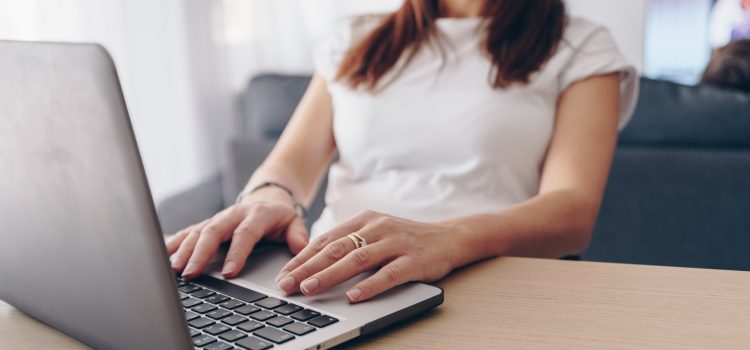Since the COVID pandemic, working from home has become significantly more commonplace.
This spike seems a direct result of the pandemic, but many businesses have kept the remote-first culture. Of course, working from home also affects freelancers, sole traders and self-employed people who were working remotely long before the pandemic.
Fortunately, there is tax relief available if you work from home and use personal resources for your business, so it’s time to make sure you’re taking advantage of it!
To help you make the most of the relief that might be available to you, we explain what self-employed people can claim when working from home, and how to go about calculating it. We also address a number of frequently asked questions, including:
- Do I divide work from home expenses by how many people use the space?
- Do I need to pay business rates to qualify for work-from-home expenses?
- What happens if my workspace has a dual personal use?
What expenses can self-employed people claim when working from home?
Self-employed people who work from home can claim many of the costs which relate to their business as an allowable expense, such as:
- Electricals (e.g., lighting)
- Gas and heating
- Maintenance and repairs
- Internet and telephone costs
- Water, in eligible cases (i.e., if you are a hairdresser who needs to use a lot of water as part of your business activity). Water usage needs to be substantial and directly related to the business.
What’s crucial is that you only claim for expenses which relate to your business. So, if you claim for maintenance costs, they must relate to the room that you use for business, and so on.
How to calculate working from home expenses
When it comes to calculating what you’re going to claim as a home-working expense, there are two main options: simplified expenses (also known as the flat rate expense method), or as a proportion of your costs. As long as you’re eligible for it, it’s up to you which method you use – so it’s worth calculating your expenses to see which method is most beneficial to you!
Explaining simplified expenses for freelancers
The simplified expenses route is a great option if you work from home for 25 hours or more every month. You’ll claim expenses as a flat rate set by HMRC, on the basis of how many hours of home-working you do.
Here’s the breakdown of what you can claim depending on the hours of business-related home-working you do each month:
| How many hours you work from home in a month | The flat rate you can claim for expenses for the month |
| 25-50 hours | £10 |
| 51–100 hours | £18 |
| 101 hours or more | £26 |
The main benefit of claiming your WFH expenses this way is that you won’t need to calculate what proportion of your bills were used for business-related activity. Hence why they’re called simplified expenses!
It’s important to note that the flat rate expense method for working from home does not include telephone or internet expenses.
You will need to claim these by working out the actual cost of your business usage instead.
The downside of simplified expenses is that, in some cases, the flat rates might not be high enough to cover the actual costs you incur. In that case you can use the costs method to claim your expenses instead, but it’s useful to have a good idea of what your costs are, to make sure you use the right method.
Claiming the cost of working from home using the costs method
Rather than using a blanket approach like the flat rate method, working out your actual costs can be rather revealing – it’s often more than you think!
Just make sure that you use a fair method to work out costs. You might need to show that you’re only claiming for the portion of your expenses which relate to business use, and not personal use.
For example, you have a house with 5 rooms in it, and use one of them as an office. One fifth of your home is used for business. If your electricity bill for the month is £100 (and these days – lucky you!), you can claim one fifth – £20.
Do I divide work from home expenses by how many people use the space?
Yes – if two or more people use the same office space in your home, you will need to divide the allowable expenses between yourselves. You won’t each be allowed to claim the full amount, but there might be the possibility for higher relief on utilities and bills according to specific usage.
Do I need to pay business rates to qualify for work from home expenses?
Whether you pay business rates or not, you will still be able to claim tax relief if you use your personal property for some business-related activity.
Whilst we’re on the subject though, if you only use a small portion of your home for work-related activity, you won’t need to pay business rates. For example, if you work from a home office or run an eCommerce business that requires you to send goods by post, you don’t need to worry about business rates.
However, there are some instances where you might need to pay business rates and Council Tax, including:
- If your property is part-home, part-business (e.g., if you live above a takeaway restaurant)
- If you have employees who work at the property
- If customers come to your property to purchase goods or services
- If you’ve made significant alternations to the property to accommodate business-related operations (e.g., if you have extended to build a home gym for personal training services)
What happens if my workspace has a dual use?
If you use a room or a space in your home for personal use as well as for work-related activity don’t worry, this is absolutely fine. It just means that you’ll need to work out how much of the time it is used for business, and how much of the time is for personal use.
Find even more advice and guidance for freelancers in our info hub!








[…] meeting spaces to see clients, or even just arrange to meet up in a coffee shop. Remember, you can claim expenses if you work from home too, so all the more reason to set up your own home […]
[…] a self-employed taxpayer, you are also able to claim tax relief against some of your costs and allowable expenses, which helps reduce your outgoings […]